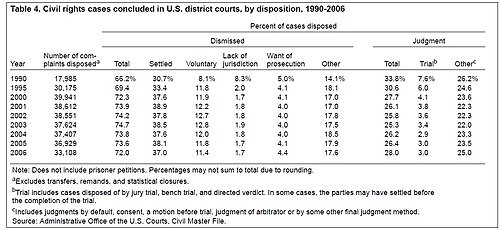Our website is made possible by displaying online advertisements to our visitors.
Please consider supporting us by disabling your ad blocker.
Discovery (law)
| Civil procedure in the United States |
|---|
| Jurisdiction |
|
|
| Venue |
| Pleadings |
|
|
| Pretrial procedure |
| Resolution without trial |
| Trial |
|
|
| Appeal |

Discovery, in the law of common law jurisdictions, is a phase of pretrial procedure in a lawsuit in which each party, through the law of civil procedure, can obtain evidence from other parties. This is by means of methods of discovery such as interrogatories, requests for production of documents, requests for admissions and depositions. Discovery can be obtained from nonparties using subpoenas. When a discovery request is objected to, the requesting party may seek the assistance of the court by filing a motion to compel discovery.[2] Conversely, a party or nonparty resisting discovery can seek the assistance of the court by filing a motion for a protective order.
- ^ Kyckelhahn, Tracey; Cohen, Thomas H. (August 2008). "Civil Rights Complaints in U.S. District Courts, 1990–2006" (PDF). U.S. Department of Justice. Retrieved 30 September 2017.
- ^ Schwarzner, William W. (1988). "The Federal Rules, the Adversary Process, and Discovery Reform". University of Pittsburgh Law Review. 50: 703. Retrieved 30 September 2017.
Previous Page Next Page


